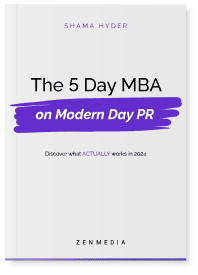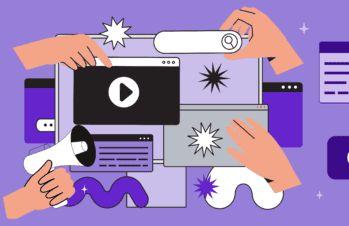For the past decade and a half, Google has been the undisputed king of the internet, dominating the search engine and digital advertising markets with seemingly little competition. However, recent events suggest that the tech giant’s grip on these industries may be slipping.
The US Justice Department has accused Google of running an illegal monopoly in its online advertising business while its search engine faces increasing competition from generative artificial intelligence. Additionally, Google’s online advertising market share has been on a steady decline in recent years. These potential threats to Google’s long period of online dominance could have a huge impact on the company’s future.
The DOJ Case and Google’s Response
In January 2023, the US Department of Justice (DOJ) filed a lawsuit against Google, accusing the tech giant of violating antitrust laws by using its dominance in the online advertising market to stifle competition. Specifically, the DOJ alleges that Google’s deals with other companies, such as device manufacturers and web browsers, make it nearly impossible for other players to compete in the online advertising space.
Google, on the other hand, has strongly disputed these claims. The company stated that the lawsuit was “doubling down on a flawed argument” and that it ignores the fierce competition within the sector. Google also argued that breaking up the company would harm consumers and stifle innovation.
The lawsuit is ongoing, and it could take years to reach a resolution. If the DOJ is successful in its case, it could force Google to make significant changes to its advertising business model, which could have far-reaching consequences for the tech industry and B2B marketing as a whole. Ultimately, the outcome of the case will have significant implications for the future of online advertising and the power dynamics of the tech industry.
The Rise of Generative AI
Google is so synonymous with online searches that its name has become a verb.
But Google’s search function is facing competition from generative AI, specifically ChatGPT and other similar AI tools. Reports suggest that Google’s management went into a “code red” situation after the launch of ChatGPT, as they feared it could undercut their search advertising business, which is part of a $149 billion business segment at the company. This is because ChatGPT can generate responses to open-ended questions, which is one of the primary ways that people use Google’s search engine.
While Google operates on a much larger scale than ChatGPT, the potential threat of generative AI cannot be ignored. Google has reportedly made significant investments in AI, but has not been transparent about how it intends to compete with the likes of ChatGPT. One move Google could make is developing their own AI tool and incorporating AI-generated responses into its search engine, alongside its traditional search advertising. How this may change the valuation of its search advertising is hard to say.
How Google will use AI in the future is still a mystery, but it’s clear that the rise of generative AI could disrupt businesses that don’t adapt.
Google’s Declining Ad Market Share
“Google may be only a year or two away from total disruption. AI will eliminate the Search Engine Result Page, which is where they make most of their money,” Paul Buchheit, one of the creators of Gmail, tweeted last year. “Even if they catch up on AI, they can’t fully deploy it without destroying the most valuable part of their business!”
In 2017, Google held a whopping 34.7% of the US market share, but this year it is projected to drop to 28.8%. This shift is partially due to increased competition from other big players in the industry, such as Amazon and Facebook, who are making significant gains in digital advertising.
Google may be only a year or two away from total disruption. AI will eliminate the Search Engine Result Page, which is where they make most of their money.
— Paul Buchheit (@paultoo) December 1, 2022
Even if they catch up on AI, they can't fully deploy it without destroying the most valuable part of their business! https://t.co/jtq25LXdkj
To respond to this challenge, Google is taking steps to diversify its business beyond advertising. For example, it is investing heavily in its cloud computing business, which has seen impressive growth in recent years. Additionally, Google is making strategic acquisitions to expand its offerings, such as its purchase of Fitbit in 2020.
Despite these efforts, digital advertising remains a crucial part of Google’s business, and the company is working to stay competitive in the space. Time will tell whether Google’s diversification strategy will be enough to maintain its dominance in the ever-evolving digital advertising landscape.
How Should B2B Marketers Respond to Google’s Decline?
While there are certainly challenges and disruptions on the horizon for Google and the online advertising industry, there are also plenty of reasons to be optimistic about the future. Google still holds more than a quarter of the advertising market, so your investment in Google ads is safe—but that doesn’t mean you shouldn’t diversify. LinkedIn, Meta, Twitter, and TikTok all have paid options that can be useful additions to a paid ad strategy.
And while internet users may be using ChatGPT and other generative AI tools to answer basic questions, when buyers are researching products to make a purchase, they are still largely turning to Google. ChatGPT doesn’t have up-to-date content, with their site only containing content from 2021 and prior, so new products and services simply cannot be explored in their platform. So is a Google-centric B2B SEO strategy still ideal?
For now, yes. But B2B marketers and business leaders should keep in mind that B2B social media marketing platforms are also becoming key search platforms. YouTube, for instance, is regularly used to locate product demos and reviews. So, while Google search authority is key, expanding the way we think about the search to include social media platforms—while keeping an eye on the AI horizon—will ensure that your search strategy adapts to match buyer behaviors.
With its vast resources, innovative mindset, and commitment to providing the best possible experience for its users and customers, Google hasn’t given up dominance yet—but it’s certainly facing new hurdles. Only time will tell if Google can maintain its dominance or if the digital advertising market will undergo a major shift. Regardless of what happens, we’ve got our finger on the pulse and are always ready to adapt our strategies to capture buyers’ attention.
Need help with your Google ad or B2B SEO strategy? Let’s talk.







